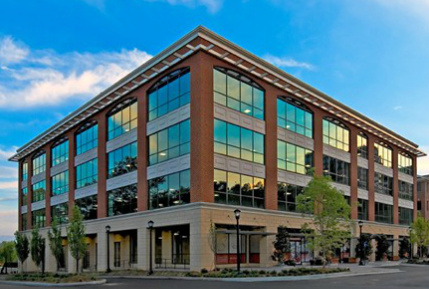The Mediation Process in Georgia: What You Need to Know
Divorce and separation can be emotionally challenging journeys, often filled with complex decisions and disputes. However, this does not always have to be the case. In Georgia, most family law cases undergo a mediation process before they are presented before a judge.
The mediation process provides a valuable alternative to traditional courtroom battles. This article explores the mediation process in Georgia, shedding light on how it works, its benefits, and why it’s a crucial consideration for couples seeking an amicable resolution to their dispute.
What is Mediation?
Mediation is a dispute resolution method that involves the assistance of a neutral third party, known as a mediator. The mediator’s role is to facilitate constructive communication between the parties, helping them reach mutually acceptable solutions. Unlike a judge, the mediator doesn’t make decisions for the couple but guides them toward finding their resolutions.
In many cases, judges in Georgia often require couples to engage in the mediation process before proceeding to a court hearing where personal matters are openly discussed. Family Law proceedings can be terrifying, and filled with all kinds of emotions. Mediation offers a valuable opportunity to step back from the turmoil and intensity, allowing individuals to express their needs and desires in a more human and less pressured environment. It grants couples the space to communicate freely, unfettered by external influences, ultimately leading to mutually agreeable decisions. This is the essence of what the mediation process provides.
The Mediation Process for Divorce
The absence of courtroom arguments doesn’t imply that mediation cannot lead you to your desired outcome. Instead, it paves a different path, devoid of the pressure associated with presenting your case and seeking validation from a third party.
The process of mediation is typically as follows:
- Initiating Mediation: Either party can propose mediation, or it may be court-ordered. Mediation typically begins with both parties agreeing to participate voluntarily.
- Preparing your case: As with a court hearing, if you hire an attorney, you’ll still have the advantage of legal counsel, who will be responsible for diligently preparing your case for mediation. Whether you choose to enlist an attorney’s assistance or decide to go through the process on your own, the importance of comprehensive preparation remains. Without professional guidance, you’ll find yourself managing the stress of case preparation alone, ensuring that all arguments and documentation are meticulously organized.
- Choosing a Mediator: Couples select a qualified and experienced mediator who specializes in family law and divorce mediation. The mediator’s role is to remain impartial and assist in resolving disputes.
- Initial Meeting: The first part of the mediation session involves an introduction to the process and the establishment of ground rules. The mediator outlines the confidentiality of the proceedings and ensures both parties have an equal opportunity to speak.
- Identifying Issues: The mediator assists in identifying the specific issues that need resolution, whether it’s child custody, property division, spousal support, or other matters.
- Open Communication: During the mediation, the mediator facilitates open and constructive communication between the parties. They encourage each side to express their concerns, needs, and preferences, while remaining respectful to the other party.
- Generating Solutions: With the mediator’s guidance, both parties work together to create potential solutions to the issues at hand. These solutions are discussed, revised, and refined until mutually acceptable agreements are reached.
- Formalizing Agreements: Once agreements are made, they are formalized into legally binding documents, which may be submitted to the court for approval as part of the case settlement.
Benefits of Mediation
- Cost-Effective: Mediation is generally more cost-effective than a lengthy court battle, as it involves fewer legal fees and less time spent in court.
- Empowerment: Mediation empowers couples to actively participate in shaping their agreements, rather than having decisions imposed upon them.
- Confidentiality: Mediation proceedings are private and confidential, protecting sensitive information from becoming public record.
- Reduced Conflict: The collaborative nature of mediation often results in reduced conflict and a more amicable post-divorce relationship.
- Timely Resolution: Mediation can lead to quicker resolutions, allowing both parties to move forward with their lives.
The mediation process in Georgia offers parties a valuable opportunity to navigate their separation amicably, collaboratively, and on their terms. By choosing mediation, parties can take control of their proceedings, reduce conflict, and foster a more harmonious post-divorce environment for themselves and their children.
Optimal Outcome from Mediation with The Edwards Law Group
Whether court-ordered or voluntarily chosen, mediation is a powerful tool for resolving disputes and finding common ground during this challenging life transition.
The key to successful mediation is thorough preparation and a clear focus on your ultimate objective. Having your end goal in mind throughout the mediation process is paramount, and having a well-defined roadmap to reach that destination is equally vital. This all circles back to the importance of being fully prepared.
At The Edwards Law Group, we’re committed to ensuring your mediation process is as meticulously prepared as any trial. Your desired outcome is our priority. Don’t leave your mediation to chance; let us guide you toward a successful resolution. Contact us today to embark on this journey with confidence. Your future is in capable hands.



